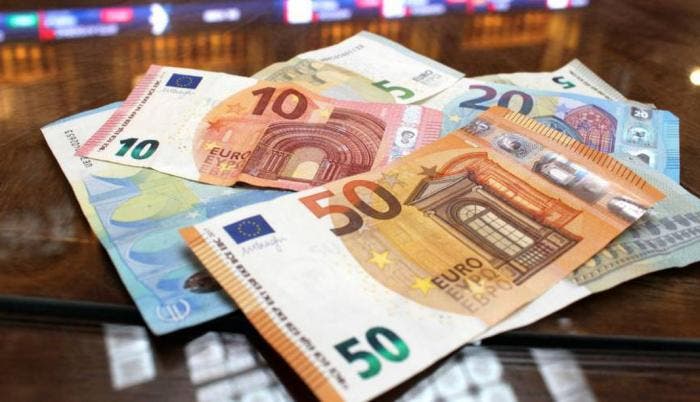Although the presence of companies dedicated to online sports betting dates back several years, until now there was no rule to govern it. The Congress of the Republic approved on July 15 a law that regulates the exploitation of remote sports games and betting that will be sent to the Executive Power for its promulgation.
According to the Ministry of Foreign Trade and Tourism (Mincetur), remote sports betting and gaming move around US$ 1,000 million“without paying income to the national treasury”. With the entry into force of the norm – whose date is not yet known – companies dedicated to the sector will pay taxes.
Below, we present ten key points about the rule that will govern this commercial activity.
1. Guarantee of almost S/ 1 million
As part of the requirements to operate in Peru, companies dedicated to sports betting must grant a guarantee to Mincetur “in support of the obligations and sanctions derived” of law enforcement. The amount of said guaranteeis equivalent to 200 Tax Units (UIT)”, that is S / 920,000, to date. In addition, the firm must pay an additional 5 UITs “for each remote sports betting game room subject to authorization”. The warranty period is one year and must be renewed for the same period. (Chapter V – Warranty)
2. Cryptocurrencies banned
The rule stipulates that the payment of the bets is made with cash, credit cards, debit cards or any other means of payment accepted by the owner. However, cryptocurrencies are excepted, which are not considered an authorized means of payment. (Chapter III – Means of payment). Cryptocurrencies are relatively popular in the country, but still there are few businesses who accept them as a means of payment.
3. In some cases, it is not allowed to exchange bonds for money
Although the law establishes that bookmakers can also reward their customers with bonuses, it is specified that these must be in addition to the corresponding payment for a winning play and that the beneficiary will have the possibility of redeeming it for money totally or partially. It is also stipulated that companies can deliver “welcome bonuses or similar, as long as they are not allowed to be exchanged for money”. (Chapter III – Bonuses). It should be noted that there are currently several bookmakers that deliver bonuses to their customers with the possibility of exchanging them for money in a peremptory period.
4. Bets should only be on sports
Among the prohibitions of the norm, it is highlighted that the companies dedicated to this area must not incorporate bets that are not related to the games or bets authorized for their exploitation. (Chapter VI – Obligations and prohibitions) That is to say, they must stick exclusively to sports and not to other subjects, such as politics or economics, to cite two examples.
5. Soccer players and coaches prohibited from betting
The law establishes that they are prohibited from participating in this activity “people who have influence or impact on the outcome of the event or sporting event that is the object of the bet”. The rule expressly mentions the case of “athletes, referees, judges, coaches and any other participant who could establish the regulations”. (Chapter VI – Prohibition to participate)
6. Advertising will be restricted depending on the medium
In the regulation of the law, the exhibition hours of betting advertising will be indicated, as well as the warnings and additional restrictions that are established, according to the means of communication used. (Chapter VII- Dissemination and sponsorship)
7. Betting rooms far from schools
“Remote sports betting game rooms should not be located less than 150 meters from temples or educational centers where regular basic education is provided”. (Chapter VI- Minimum required distance)
8. Compulsory gambling warning
Bookmakers are obliged to incorporate the following warning on their web pages or applications or any technological platform in which they carry out their activity: “Excessive remote gambling and sports betting can cause pathological gambling”. (Chapter VI – Obligations and prohibitions)
9. Dedicated domain
It is also established that the technological platform for remote sports betting “must be carried out through the use of the domain authorized by the extension”bet.pe”. (Chapter II – Administrative authorizations) It should be noted that the domains “bet” are the main players in everything related to sports betting or games of chance.
10. What are the sanctions to which the bookmakers are exposed?
Depending on the infractions they incur against the law, natural persons and bookmakers may be subject to a wide range of sanctions, from a simple reprimand to permanent disqualification, through fines of up to 200 UIT. In addition, the closure of the establishment, the suspension of its activities, confiscation of goods, blocking of its website, among other corrective measures, are also considered. (Chapter IX – Offenses and sanctions)
BONUSES
When will the rule come into force?
If the Executive Branch approves the law, the Ministry of Foreign Trade and Tourism has a period of 120 days to prepare and publish the regulations. A) Yes, the rule will enter into force 60 days after the publication of said regulation.
RECOMMENDED VIDEO
:quality(75)/cdn.jwplayer.com/v2/media/IDbpDzB4/poster.jpg)

















